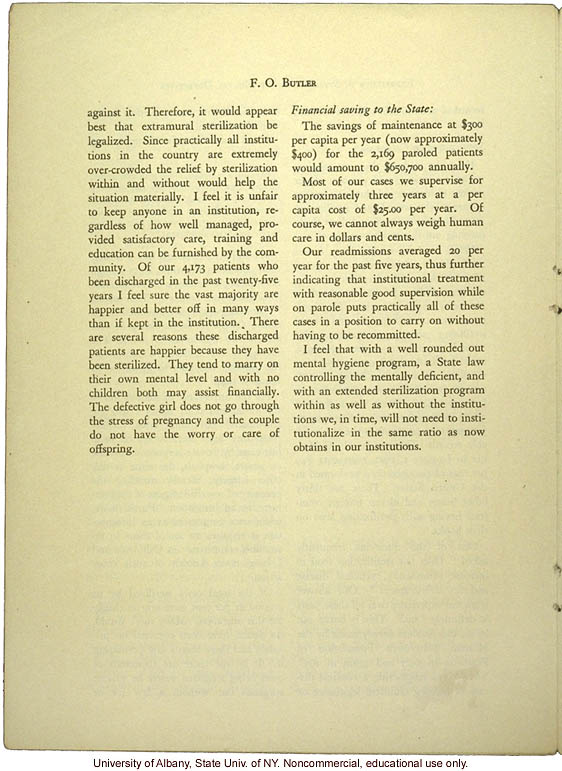F.O. Butler
against it. Therefore, it would appear best that extramural sterilization be legalized. Since practically all institutions in the country are extremely over-crowded the relief of sterilization within and without would help the situation materially. I feel it is unfair to keep anyone in an institution, regardless of how well managed, provided satisfactory care, training and education can be furnished by the community. Of our 4,173 patients who [sic] been discharged in the past twenty-five years I feel sure the vast majority are happier and better off in many ways than if kept in the institution. There are several reasons why these discharged patients are happier because they have been sterilized. They tend to marry on their own mental level and with no children both may assist financially. The defective girl does not go through the stress of pregnancy and the couple do not have the worry or care of offspring.
Financial saving to the State:
The savings of maintenance at $300 per capita every year (now approximately $400) for the 2,169 paroled patients would amount to $650,700 annually.
Most of our cases we supervise for approximately three years at a per capita cost of $25.00 a year. Of course, we cannot always weigh human care in dollars and cents.
Our readmissions averaged 20 per year for the past five years, thus further indicating that institutional treatment with reasonable good supervision while on parole puts practically all of these cases in a position to carry on without having to be recommitted.
I feel that with a well rounded out mental hygiene program, a State law controlling the mentally deficient, and with an extended sterilization program within as well as without the institutions we, in time, will not need to institutionalize in the same ratio as now obtains in our institutions.
[end]


